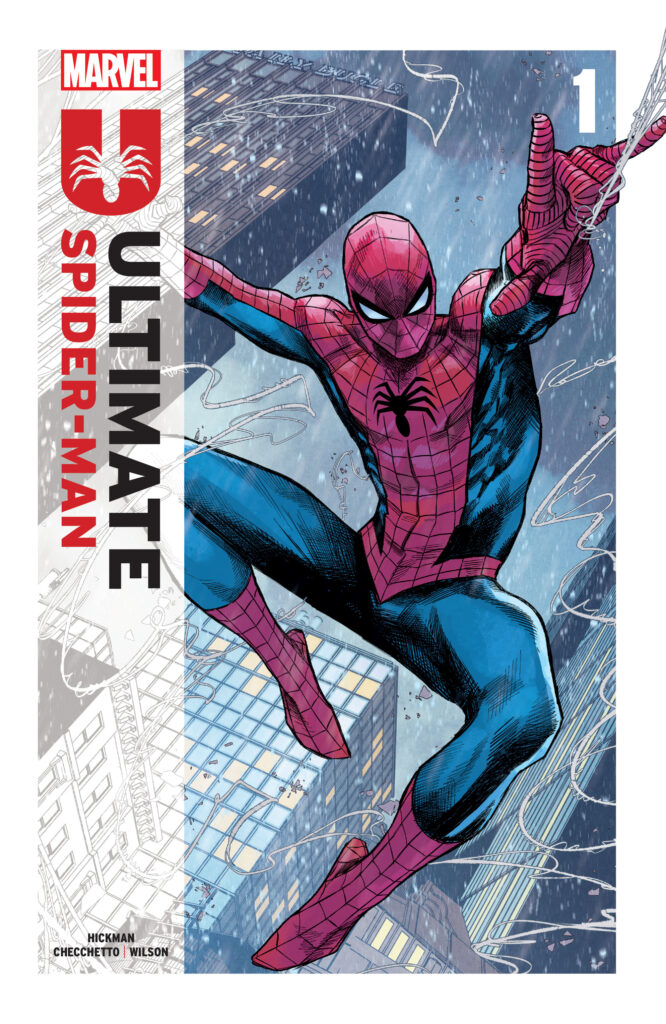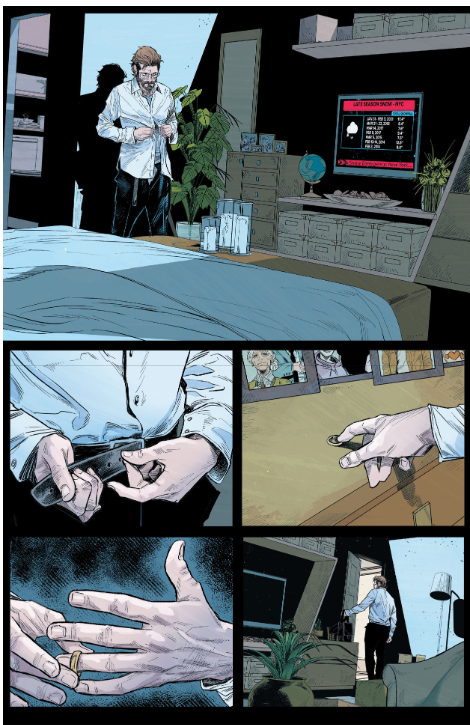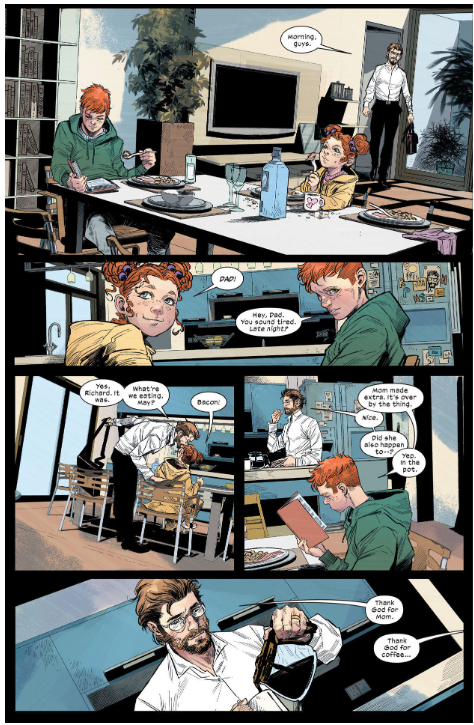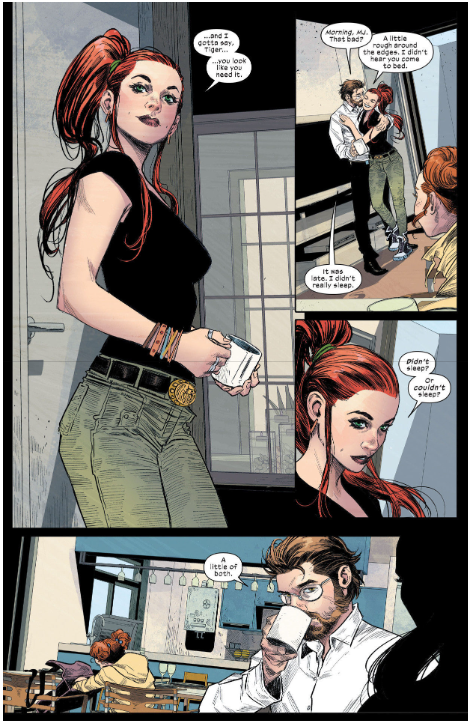
- Ultimate Spider-Man #1
- Marvel Comics
- Written by Jonathan Hickman
- Illustrated by Marco Checchetto
- Colors by Matthew Wilson
- Letters by VC’s Cory Petit
- Main Cover art by Marco Checchetto
- Alternate Covers by
- Mark Bagley & Edgar Delgado
- J. Scott Campbell & Sabine Rich
- Marco Checchetto & Matthew Wilson
- Tony Daniel & Jay David Ramos
- Nic Klein
- Mateus Manhanini
- David Marquez & Marte Gracia
- Ryan Stegman
- JP Mayer & Matt Milla
- Elizabeth Torque
- Spider-Man created by Stan Lee & Steve Ditko
This isn’t a review, just some observations that have come up in recent conversations (but yes, Ultimate Spider-Man #1 was a good book). I’ve heard a lot of talk about where the comic book industry is heading, whether it’s in its final days, and what we might need to do to maintain the status quo. My final word, which I maybe should have put at the end of this piece, is that sequential art used to tell a story has been around since the first person used a burnt stick to portray a scary encounter with a sabretooth tiger. Comics will change, comics will have to change, but in the end, I don’t think they’re going to go away.
On what do I base this opinion, you ask? I’ve been reading comics since the mid-70s. They’ve always been a part of my life & a source of both entertainment and information. In all that time, I’ve seen comics go through changes, in writing & artistic styles, production value, and creative content. In more recent years I’ve learned that the “new talent” coming up in the ranks is rarely all that “new”. Take a look at some of the kids putting out content for the Big 2 (DC & Marvel) right now, like Ram V (Swamp Thing, Detective Comics), & David Pepose (Savage Avengers, Punisher, Moon Knight), and dig into where they’ve come from. If you don’t want to look that up, the answer is small press & indie comics. Stories have always relied on creative minds pushing the envelope and coming up with new tales to tell and different ways to tell them. Most of those new ideas are to be found in independent creators.

How does any of that relate to Marvel’s push into new titles falling under the Ultimate tagline? For comics to move forward, Marvel and DC will have to push in new directions to be relevant and attract new readers. As things are, both are bogged down in well over half a century of continuity (Spider-Man was first published in 1962, Superman in 1938!) and have started to feel the crush of that weight. Even speaking as a guy who’s been around for as long as I have, there are titles out there that I feel are completely inaccessible to me because of their history. I was into the X-Men titles in the 80s & 90s, big time, and whenever I try to get back into them, I’m lost! Think about how young and new readers feel as they try to navigate all those storylines and character histories. While I’m a stubborn old curmudgeon and not a fan of reboots in general, even I have to admit that it’s going to take something new to keep moving forward.

And this is what Ultimate Spider-Man is trying to do. It’s a step away from the continuity we know without coldly abandoning the characters we love, which is where I think Marvel’s first run at the Ultimate titles went wrong. In this new Ultimate universe, a place largely deprived of superheroes, Peter Parker was never bitten by a spider as a teenager. He grew up, married MJ, had two kids, and made a pretty decent life for himself without the Friendly Neighborhood Arachnid. But as we’re meeting Peter in his thirties, he feels that there’s something… missing. This opening issue hits more of a middle ground between starting over wholly from scratch and keeping up the spirit of one of Marvel’s most beloved and long-standing characters.

It’s a swing, and while it might put off some of the folk who remember the original Ultimate titles with a sour taste (you know who you are), I will say in all honesty that this Ultimate Spider-Man is off to a solid start. It’s a good introduction to a new story but at its core, I think that Peter is profoundly still Peter. This is Marvel’s attempt to try something new without abandoning what’s gone before, and hopefully without alienating their established fanbase.

Like it or not, change is coming. We can complain about it, we can rail against it, but we can’t deny it. For the comics we love to keep going, we’re going to have to accept that what we love will have to change. Whether that means new storylines have to be embraced, or that we need to dial back on our insistence that digital media is the work of the devil, it’s all golden. Change is growth, and growth is evolution. Anyone who’s paying attention at all is going to tell you that it happens, with or without us, so we need to get on board or be left behind.
That’s it. The soapbox rant is over, so go grab some comics in whatever way you choose. If you need a suggestion or two, hit me up. I have thoughts.